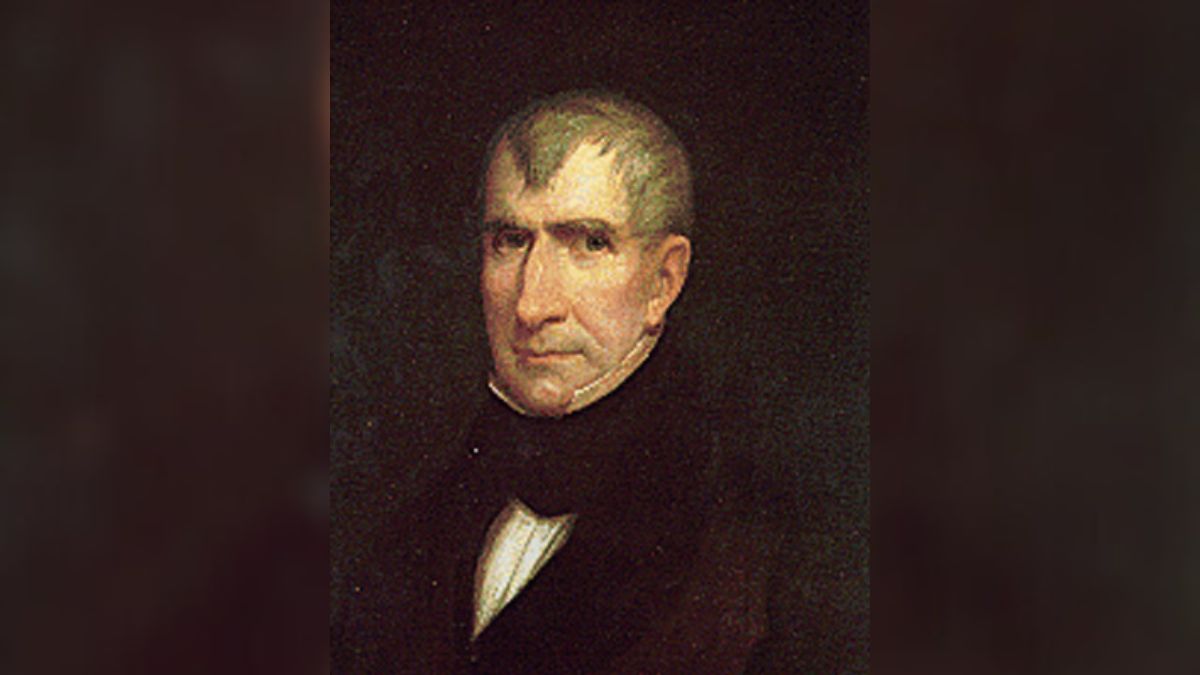Editor’s Note: This profile is part of a series taking a closer look at US presidents ahead of the 2024 presidential election between Donald Trump and Kamala Harris.
William Henry Harrison, the ninth president of the United States, holds the unfortunate distinction of having the shortest presidency in American history. He died just 31 days after taking office in 1841, leaving a significant “what if” in US political history.
Prior to his presidency, Harrison was a celebrated military leader and territorial governor, known for his victories against Native American forces and his role in expanding US control over the frontier.
Early life in the military
William Henry Harrison was born on February 9, 1773, at Berkeley Plantation in Charles City County, Virginia.
His family was part of Virginia’s planter aristocracy; his father, Benjamin Harrison V, was a signatory of the Declaration of Independence and later served as the governor of Virginia.
Harrison grew up in a politically influential environment, yet he chose a military career over following directly in his father’s footsteps.
In 1791, Harrison joined the US Army and was assigned to the Northwest Territory, where he served under General “Mad Anthony” Wayne. Harrison’s early military career focused on conflict with Native American tribes resisting US expansion into their lands.
He distinguished himself in the Battle of Fallen Timbers in 1794, which broke Native resistance in the Ohio Valley and led to the Treaty of Greenville in 1795, opening much of present-day Ohio to American settlement.
Spotlight in politics
Harrison transitioned into a political career in 1798 when he became the secretary of the Northwest Territory. His influence grew when he was appointed the governor of the newly created Indiana Territory in 1800, a position he held for over a decade.
As governor, Harrison was responsible for negotiating land treaties with Native American tribes, securing millions of acres for the United States through controversial agreements.
One of Harrison’s most notable moments came during the War of 1812, where he served as a major general in the US Army.
His victory at the Battle of Tippecanoe in 1811, fought against Shawnee leader Tecumseh’s confederation, made him a national hero and earned him the nickname “Old Tippecanoe.” Though the battle itself had mixed results, it was perceived as a decisive blow against Native resistance, propelling Harrison to national prominence.
Harrison’s military success continued in the War of 1812 when he defeated British and Native American forces at the Battle of the Thames in 1813. This victory, which resulted in the death of Tecumseh, further solidified his reputation as a frontier hero.
Road to the top
After the War of 1812, Harrison served in various political roles, including as a member of the US House of Representatives, the Ohio State Senate, and as a US Senator from Ohio.
He also served as the US Minister to Gran Colombia in 1828, though he was recalled shortly after Andrew Jackson took office as president.
Harrison’s national fame as a military hero, however, never waned. In 1836, the Whig Party nominated him for president, but he lost to Democrat Martin Van Buren.
Four years later, in 1840, Harrison was chosen again as the Whig candidate for president. This time, he ran a populist campaign highlighting his frontier lifestyle and military record. The “Log Cabin and Hard Cider” campaign, which portrayed him as a man of the people, resonated with voters.
His running mate, John Tyler, helped secure Southern support, and the famous slogan “Tippecanoe and Tyler Too” became one of the most memorable in US political history.
Harrison won the 1840 election in a landslide, defeating incumbent US President Martin Van Buren. At age 68, Harrison became the oldest person to assume the US presidency until Ronald Reagan in 1981.
The shortest presidency in US history
William Henry Harrison was inaugurated as the 9th president on March 4, 1841, on a cold and rainy day in Washington DC.
In an effort to demonstrate his vitality and stamina, Harrison delivered the longest inaugural address in US history, speaking for nearly two hours without wearing a coat or hat. Shortly after taking office, Harrison fell ill, likely from pneumonia or a similar respiratory condition.
On April 4, 1841, just 31 days into his presidency, Harrison died, making him the first US president to die in office.
His death created a constitutional crisis, as it was unclear whether US Vice President John Tyler should assume the full powers of the presidency or merely act as a temporary replacement.
Tyler’s decision to fully assume the office of president set an important precedent for presidential succession.
The legacy and personal life of WH Harrison
Although William Henry Harrison’s presidency was tragically short and largely inconsequential in terms of policy, his legacy endures due to his earlier military achievements and his role in shaping the nation’s expansion.
His death also played a pivotal role in clarifying the rules of presidential succession, which were formally codified much later in the 25th Amendment to the Constitution.
Harrison was married to Anna Tuthill Symmes, and the couple had ten children, several of whom went on to hold prominent political and military positions.
One of Harrison’s descendants, Benjamin Harrison, would later become the 23rd president of the United States, making William Henry Harrison one of only two presidents to have a grandson also serve as president.
William Henry Harrison’s legacy is primarily defined by his military service and his role in expanding US territory through conflict with Native Americans.


)

)
)
)
)
)
)
)
)



